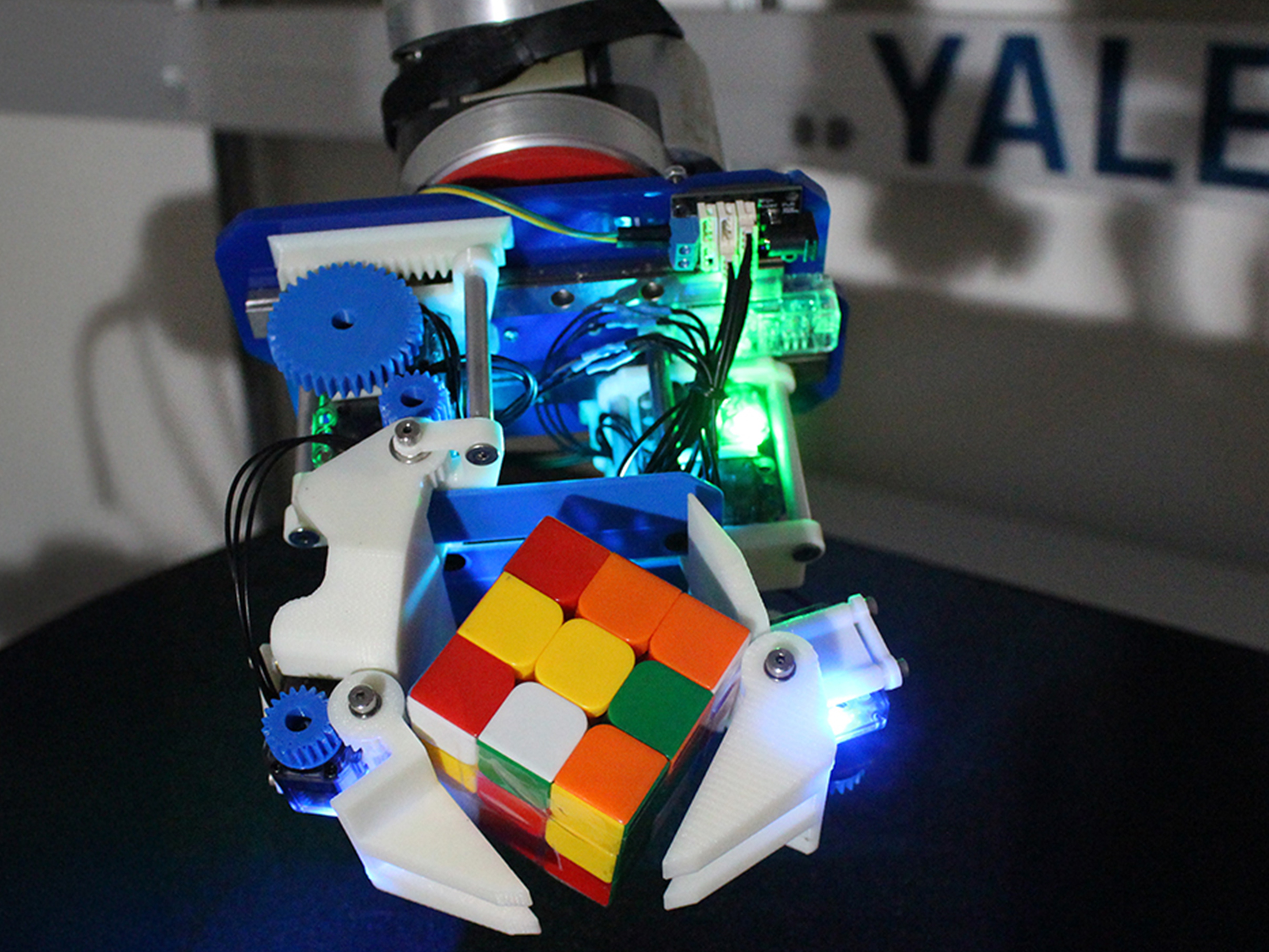Robotics for Humanity
With robotics poised to make sweeping and wide-ranging impacts on modern life, Yale Engineering is integrating the technology seamlessly and beneficially into the home, the workplace, healthcare, and other aspects of our lives.

Inspired by nature, Yale roboticists have created shape-changing robots, including an amphibious turtle-inspired robot that can be tested in the School's specialized Tech Tank facility — a 20,000-gallon controlled aquatic environment for developing and optimizing water-based robotics. They have also pioneered “robotic skins”–flat, skin-like robots made with elastic sheets embedded with sensors and actuators–that can be wrapped around soft deformable objects to control those objects from their surface.
Our roboticists have captured the complexity of the human hand, work that has led to dexterous prosthetic hands for amputees, grippers for various vehicles, and robotic hands that can reorient objects within their grasp.
With robots increasingly present in the workplace and our homes, Yale Engineering researchers are building robots to navigate unfamiliar environments, learn from their mistakes and even know when to ask humans for help. And to ensure that robots and humans get along, they’re using artificial intelligence and behavioral science to help robots understand social dynamics, and respond appropriately.
They’re also using interactive robots to explore questions about social development. It’s been used to help members of the neurodiverse community and others adapt to social situations.
Our robotics labs are immersed in interdisciplinary collaborations both within the School as well as with Psychology, Environment, Medicine, and others–all with the aim of finding impactful solutions to essential human challenges.